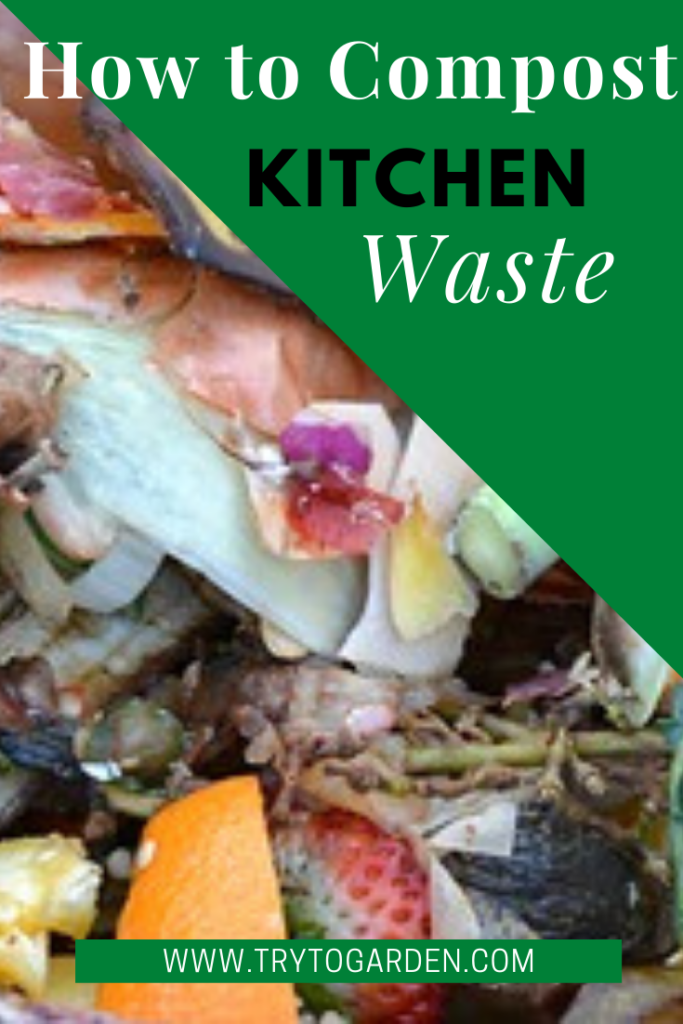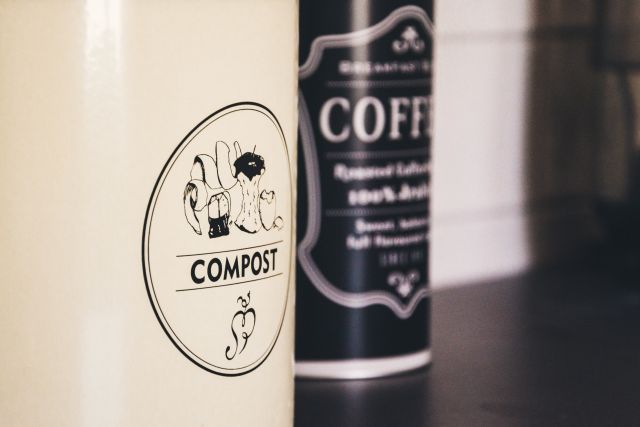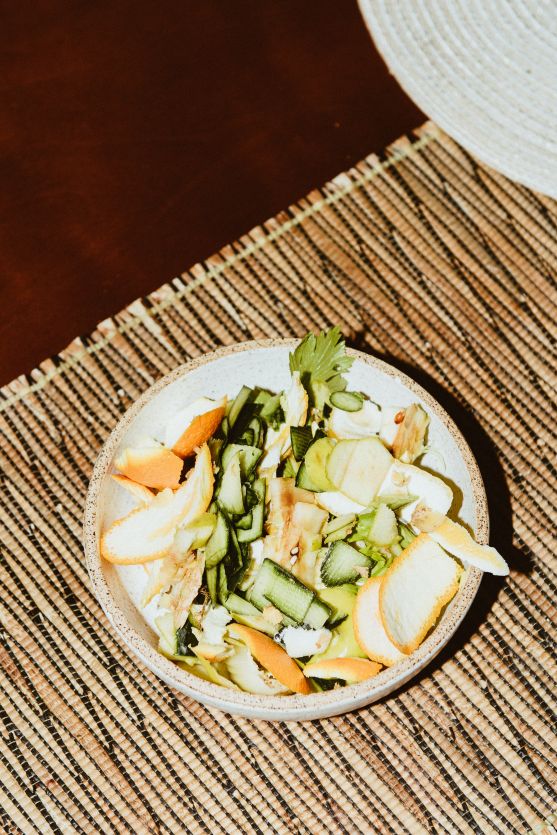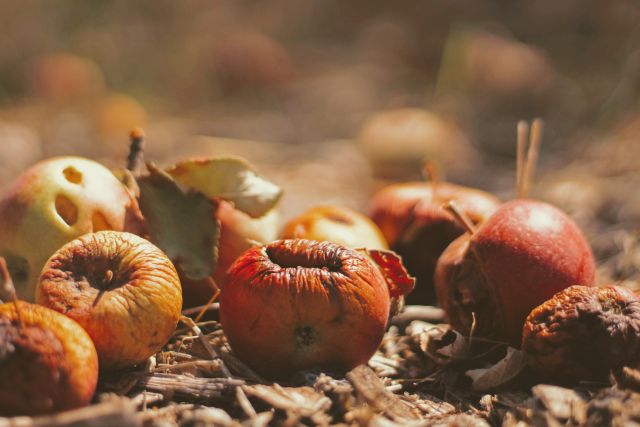This post contains affiliate links, which means I will make a commission at no extra cost to you should you click through and make a purchase. As an Amazon Associate I earn from qualifying purchases.
Hesitant to start composting because you fear it will be a smelly, messy inconvenience? Read on. A compost bin can reduce your garbage bill and enrich your garden! The answer is all about the way to compost kitchen waste!

The secret is to do it right, and it's not complicated. Here are some tips that will help you become an expert at composting.
How to Compost Your Yard Garden Kitchen Waste
Composting Kitchen Waste
What Can Be Composted
Any organic matter can be composted, but it is best to stick with vegetable matter, such as coffee grounds and spoiled or scrapped fruit and veggies. Avoid composting animal products because meat and dairy may attract scavengers. The only exception that is worth the risk is eggshells, which are great for enriching your compost.
Storing Kitchen Waste
You don't want to have to venture outside every time you have a scrap to compost, but you also need to keep your kitchen from smelling like rotten food. Some garden catalogs offer individual kitchen containers for composting that have a charcoal filter to prevent odors from escaping. However, you can also use any inexpensive storage container that has an airtight seal. Ceramic canisters with a rubber seal around the hinged lid work very well.

How to Compost
Although it is possible and free to compost your kitchen waste by just placing it in a pile in an out-of-the-way area of your yard, this is the least effective way to break down the material that you are trying to compost.
A Compost Pile
Materials that are breaking down need some degree of air circulation and need to be mixed or turned at regular intervals. A pile of composting material will break down very slowly unless turned frequently.
Traditional Plastic Bins
Compost bins help control the heat and moisture content of the material that is being broken down and, depending on your perspective, are generally more attractive than a pile of rotting organic matter.
You can generally purchase a standard (recycled) plastic compost bin for between $30 and $100 online or at your local garden supply store. These bins are easy to assemble and are designed to have spacing between the bins slats that allow air into the container. They are also most often black, which helps the bin capture and retain heat, allowing the organic matter to break down more quickly. If you are handy, you can also build your compost bin for very little expense.

Compost Tumblers
You can also purchase compost bins in the form of canisters that you can rotate with a handle, instead of turning or mixing with a pitchfork. Although these tumblers are more convenient, they are also generally much more expensive than traditional bins. Mother Earth News did a study to compare tumblers to conventional composting bins and found compost tumblers to be no more efficient than the composting the old fashioned way.
Turning Waste into a Rich Supplement to Your Garden Soil
Whichever method you use to compost your kitchen and yard waste, it will take about a year before the organic materials are broken down and ready to add to your garden soil. Regularly turning the pile and occasionally adding compost inoculant (a power containing microbes that help break down organic material) will speed up the process.

